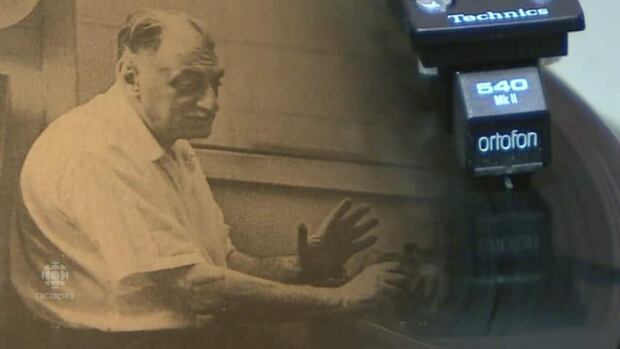Alberta Indigenous voices captured for Folkways legacy
From 8-tracks and VHS tapes, a new project preserves Aboriginal archives before it's too late
In a sacred space for sound, Edmonton archivists are digitizing and preserving Alberta Indigenous history.
FolkwaysAlive! is tucked away on the third floor of the old arts building on the campus of the University of Alberta.
The mandate of the research centre is simple, according to its director Mary Ingraham.
"To promote, to preserve and to document the culture of our people in our time," she said.

For Bert Crowfoot, that means more than 50 years worth of priceless material is now being rescued.
Crowfoot is the CEO, founder and publisher of the Aboriginal Multi-Media Society of Alberta (AMMSA).
The society's stacks of newspapers, boxes of VHS tapes and reel-to-reel audio tapes are being preserved in a digital format before they degrade, decompose and, in some cases, disintegrate, Crowfoot said.

"This is a very rich history of our people, and a lot of these stories are from our perspective as an Indigenous people," Crowfoot said.
The sounds, songs, stories and voices could have been lost forever, he added.
"A lot of it is people who've passed away. A lot of our leaders who helped forge the history are the people speaking. It's important that we hear."
Folkways Records founder Moses Asch had the same belief.
Started in New York City in the 1940s, Folkways captured the music of Woody Guthrie, Pete Seeger and Lead Belly, the speeches of Martin Luther King and eclectic natural compositions like the sounds of North American frogs.

The couple had a son named Michael who was an anthropology professor at the University of Alberta.
That family connection is how Alberta ended up with one of only two complete Folkways Records collections accessible to the public.
The other is in Washington, D.C. at the Smithsonian Institute.
The vision Moses Asch had more than 70 years ago continues to play out at public concerts, free online access to the collection and digitized recordings like the ones with the Aboriginal Multi-Media Society of Alberta.
"Sound accessible to everybody all the time," said Ingraham.


